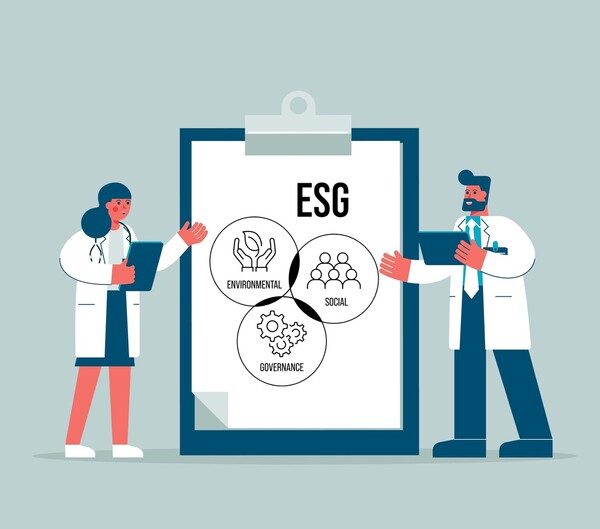Although “sustainable management” has long emerged as a business trend, only 45 percent of Korean medical institutions have personnel responsible for environmental, social, and corporate governance (ESG) issues, a report said.

The Korea Health Industry Development Institute released a report, “ESG trends among local and foreign medical institutions and policy suggestions,” on Tuesday, containing this and other contents.
Through ESG management, medical institutions seek to get out of hospitals that treat patients well but aim at a higher level by realizing social values, according to the report.
The institute surveyed 877 officials at 1,769 medical institutions promoting international medical business, and only 395, or 45 percent, replied their institutions have personnel responsible for ESG management.
The positive respondents broke down into 39 out of 59 officials at tertiary general hospitals, 53 of 102 general hospital employees, and only 113 of 356 officials at neighborhood clinics.
Medical institutions most active in ESG management were Kangbuk Samsung Hospital, Korea University Medicine, Samsung Medical Center, Seoul National University Hospital, Asan Medical Center, Sejong Hospital, and Chonnam National University Hospital.
Their major tasks include:
• Realizing carbon neutrality.
• Using renewable energy.
• Reducing medical waste.
• Minimizing disposables.
• Strengthening the management of animal tests.
• Enhancing social contribution.
• Seeking win-win innovation with partners for patients.
• Renovating the work environment.
• Streamlining the ESG promotion system.
“Amid the prolonged Covid-19 pandemic, the international community is moving toward strengthening management for sustainable growth and development,” the report said. “MSG management will become increasingly important to sharpen the global competitiveness of Korean medical institutions seeking international business.”
The report noted that Korean medical institutions remain at an introductory stage of ESG management, and officials responsible for this issue perceive it as a process to push existing management in more detailed and systematic ways. The difference resulting from the ESG introduction will be an approach that seeks co-prosperity and synergy instead of independent survival and development ecologically, it added.
“Currently, some domestic medical institutions are expressing their will for ESG management by, for instance, forming management declaration committees and promoting concrete activities in each sector,” the report said. “As the ESG at medical institutions comprises complex and diverse interest groups, ranging from patients and their guardians to medical professionals, other hospital staff, and supplier companies, they must develop a detailed model reflecting all these.”

